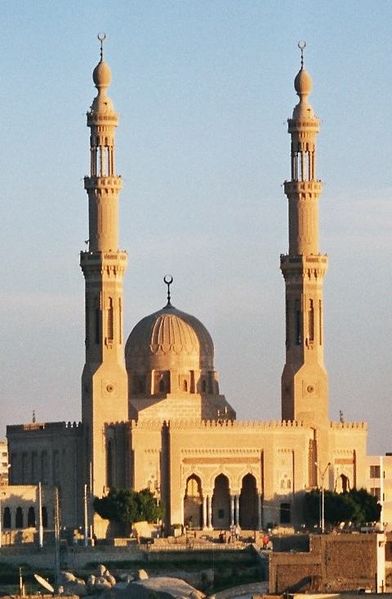
Let's begin by recognizing that Indonesia, a country where 86% of its estimated 252,812,245 population is Muslim, is a democracy with a traditional commitment to religious diversity. Despite opposition from extremists,
Time magazine (April 27/May 4, 2015) noted that Indonesia's President Joko Widodo appointed a Christian woman as a district chief in Jakarta. In other words, hate for the West is not an emotion shared by all Muslims.
Zak Ebrahim, whose father murdered a militant Jewish Defense League rabbi and helped plan the first World Trade Center bombing in 1993, observed in his book,
The Terrorist's Son, "murderous hatred has to be taught...forcibly implanted. It's not a naturally occurring phenomenon." It is, therefore, not to justify or condemn the feelings of Muslims who hate the West but to lay out the reasons Ebrahim's father, El-Sayyid Nosair, and those in Lawrence Wright's book,
The Looming Tower: al-Qaeda and the Road to 9/11, give to explain why they hate the West.
Wright reminds us that Muslims went in two different directions after the death of Mohammed. The vast majority of Mohammed's followers are Sunnis who believe caliphs, Islamic clerics, should be elected. In contrast Shia Muslims, such as the Iranian Muslims who are Persians rather than Arabs, expected a hereditary caliphate, rule of Islamic clerics, to begin with Mohammed's cousin and son-in-law, Ali ibn Abi Talib. Within the Sunni majority, a fundamentalist subset of Salafists believe the only valid Islamic practices are the "early Muslim" (Salaf) ways followed during the time of Mohammed (See a description in the earlier blog post, "This We Believe."). In Egypt, Hasan al-Banna founded the Muslim Brothers in 1928 in order to form an Islamic state where the government, a Sharia legal code based on 500 immutable verses from the
Quran, and lives would be centered on God. The Muslim Brotherhood came to be seen as a social service agency that provided jobs, schools, and hospitals and as an organization willing to achieve an Islamic state through the political process and compromise. Within the Brotherhood, a "secret apparatus," or army, also was formed to achieve this aim by violent means. The Ayatollah Ruhollan Khomeini, who formed a rigid theocratic state in the wealthy, modern country of Iran in 1979, sanctions this kind of terror and the use of the sword by warriors in a
jihad, holy war, against infidels. Iran became a model for those who would impose religious dictatorships by force.
To devout Muslims, infidels are those who practice a full array of godless, immoral behavior: homosexuality, adultery, divorce, the sexual freedom of women who flirt and wear enticing colors, close male and female dancing, jazz that arouses primitive instincts, drinking liquor and drunkenness, racism, violent sports, individualism, and materialism. Muslims believe Islam will triumph over both capitalists and communists, because modernity in the West, rather than focusing all aspects of life on God, has separated the secular and sacred, mind and spirit, state and religion, and science and theology.
However, Muslim aspirations for forming an Islamic theocracy in Egypt were crushed by the secular regime of Gamal Abdul Nasser; Israel's swift victory in the 1967 Six Day War; and Anwar al-Sadat's secular democratic state, his ban on religious student organizations and traditional Islamic garb worn by university women, and Egypt's peace agreement with Israel. When a military plot to kill Sadat was successful in 1981, thousands were imprisoned in a 12th century dungeon where they were severely tortured. Among the prisoners was Ayman al-Zawahiri, a member of an underground cell that kept alive the idea of a jihad movement that would establish an Islamic state. When Zawahiri, who was a doctor, first went to Pakistan in 1980 to care for Afghan refugees who fled across the border following the Soviet invasion, he noted the training received by the Afghan freedom fighters or holy warriors, the "mujahideen," and how the area could serve as a base for recruiting an army of jihadists to take over Egypt and ultimately the West, considered to be the enabling force behind the Egyptian regime and state of Israel. Zawahiri's organization, which was strapped for money, would join forces with Osama bin Laden in the well financed al-Qaeda organization.
The divide between supporters of secular governments and Islamic theocracies shows itself in a variety of countries. In Bangladesh, the secular Shahbag movement squares off against Ansar al-Islam Bangladesh, a group with ties to al-Qaeda in India. Al-Qaeda is taking credit for the May 12, 2015 murder of Ananta Bijoy Dash, who wrote for the Free Mind website that promotes secularism in Bangladesh.. Earlier, other Bangladesh bloggers, Avijit Roy, Oyasiqur Rhaman, and Ahmed Rajib Haider also had been killed by young Islamic activists. Dash had told friends that he did not expect anyone to kill him in his home in Sylhet.
It should be noted that religion is not the only cause for the rise of what has become known as Islamic fundamentalism. Racism, and in some cases colonialism, has had an impact on non-whites.
In Egypt, for example, the poverty, disease, and illiteracy of the local population stood in stark contrast to the sporting clubs, hotels, bars, casinos, movie theatres, restaurants, and department stores that catered to the English upper classes and troops who began coming to Egypt when it became a British Protectorate in 1882. In fact, British troops continued to maintain a base in the Suez Canal Zone throughout half of the 20th century.

